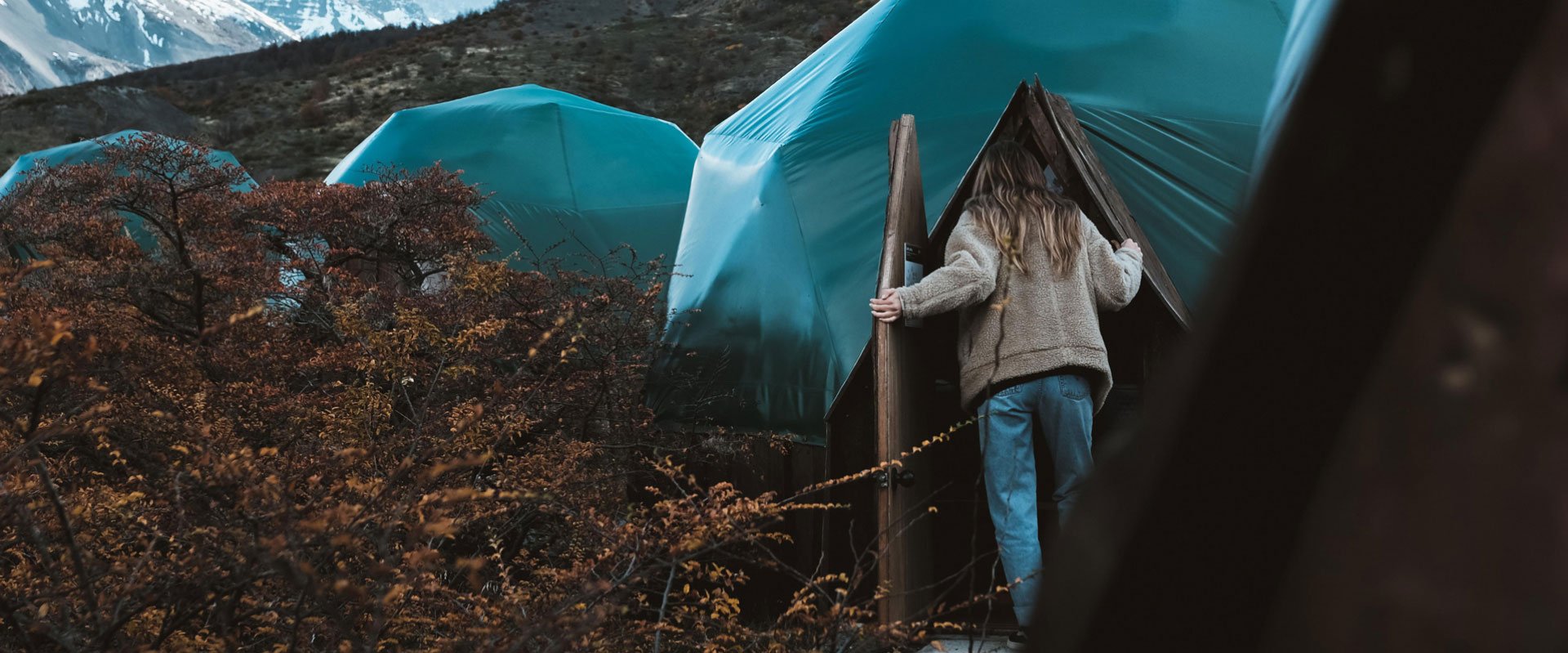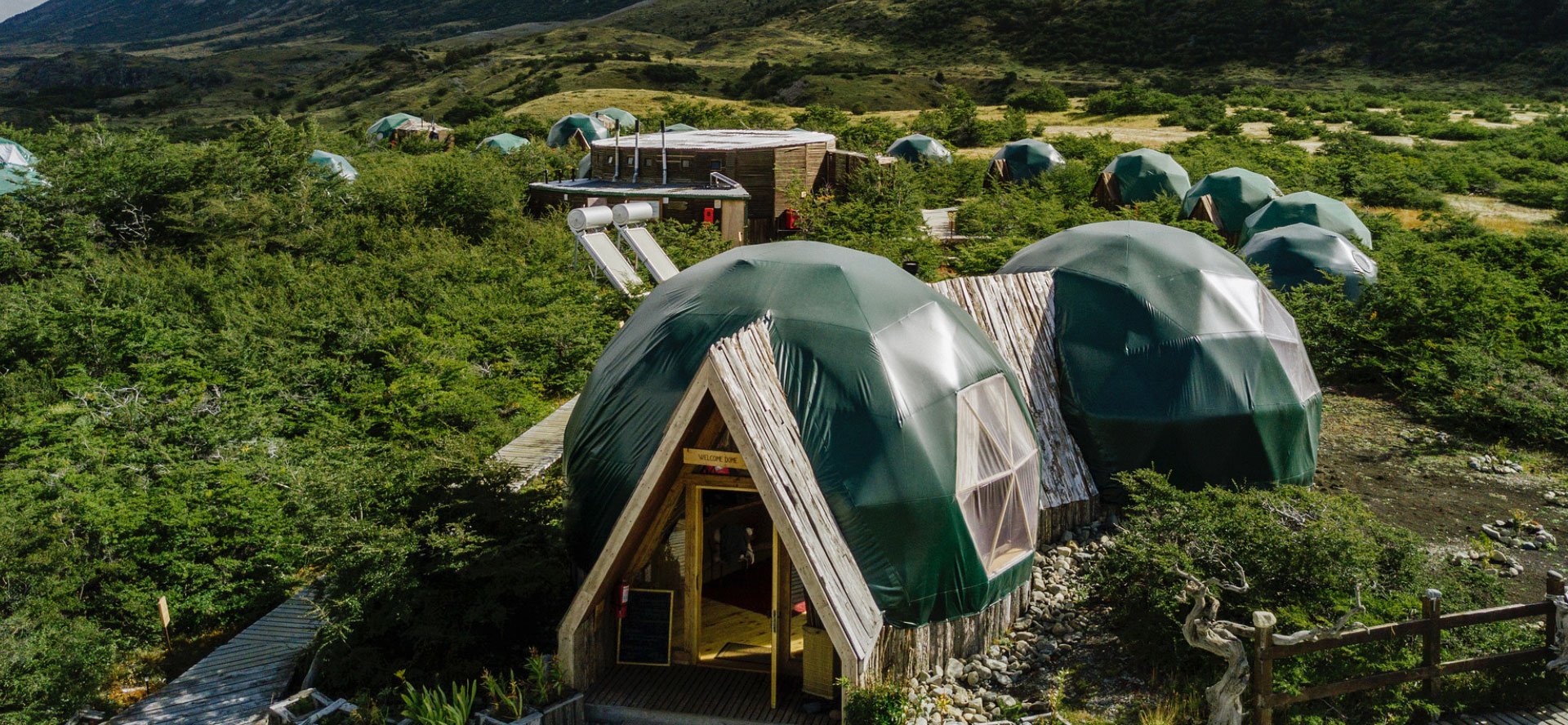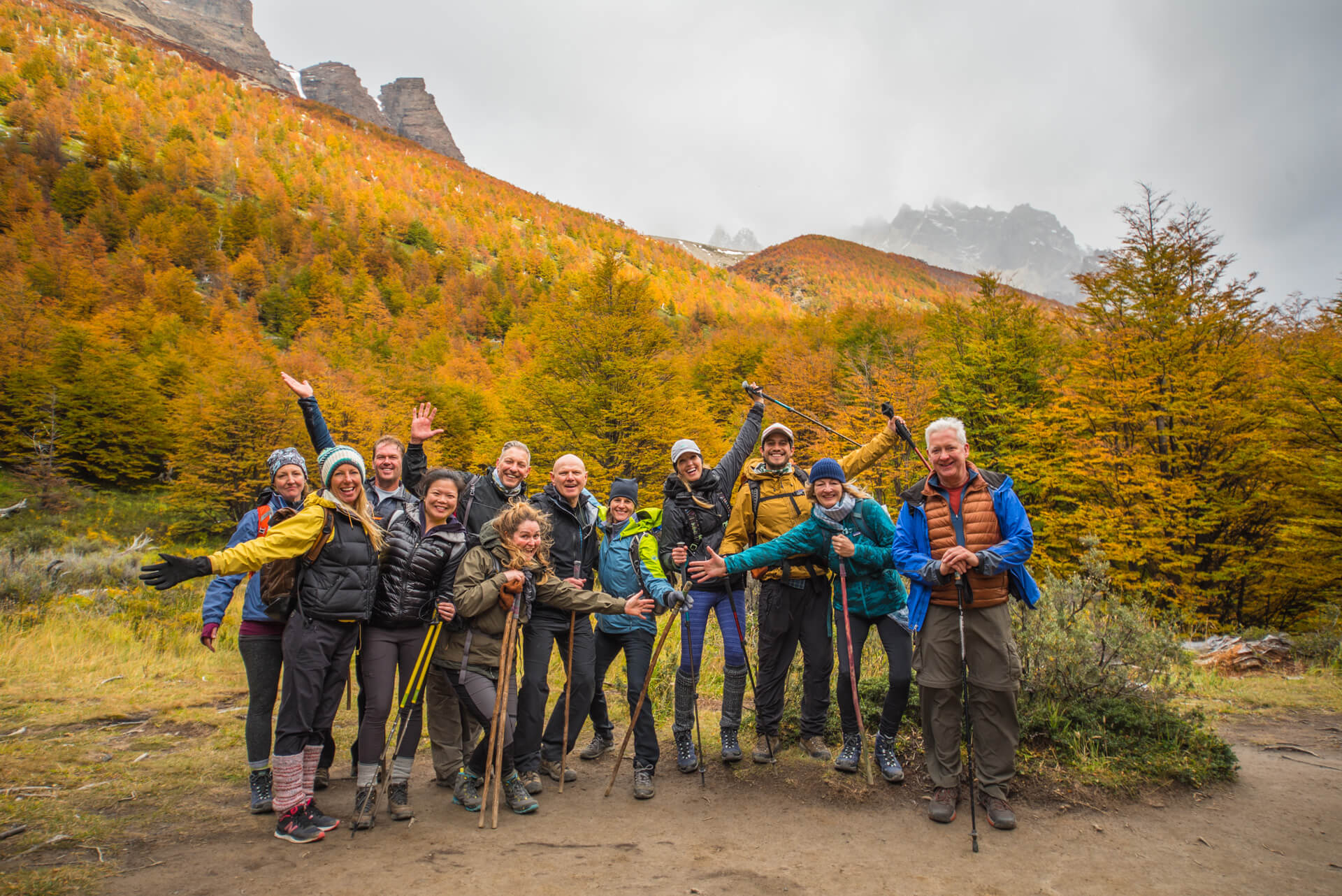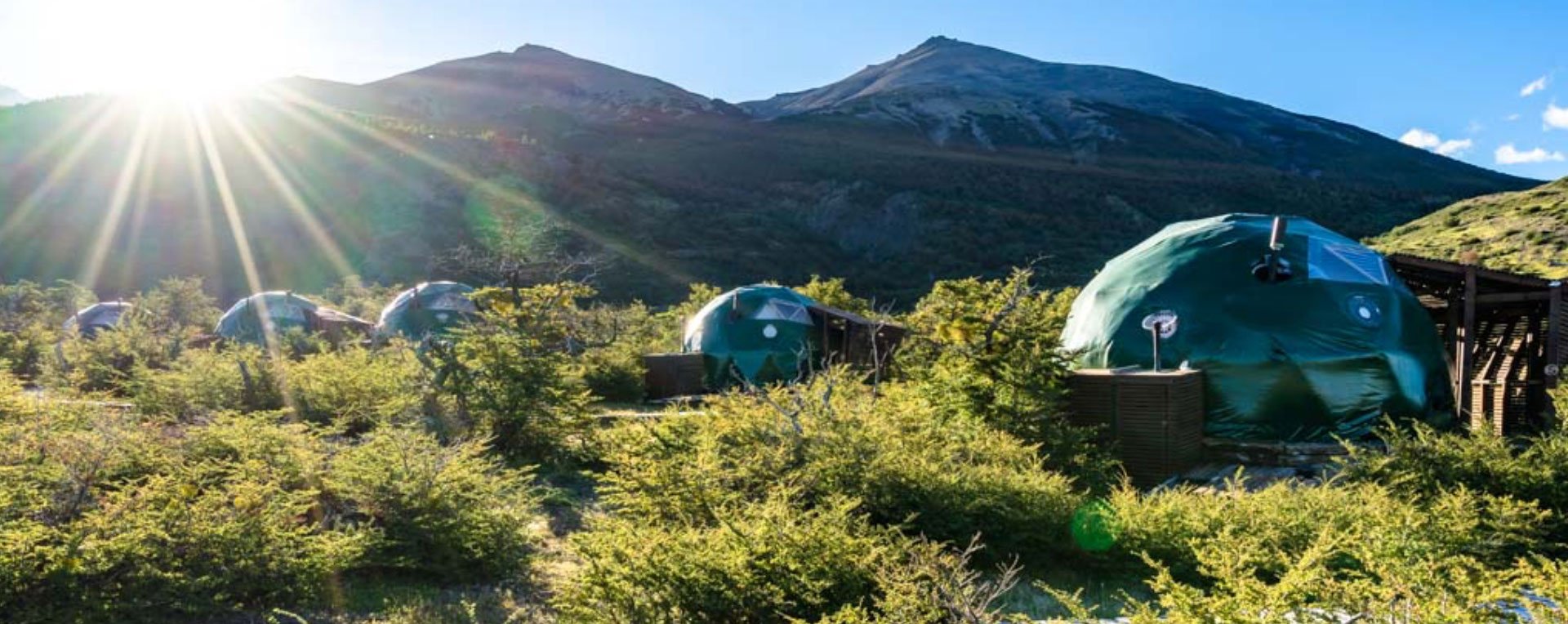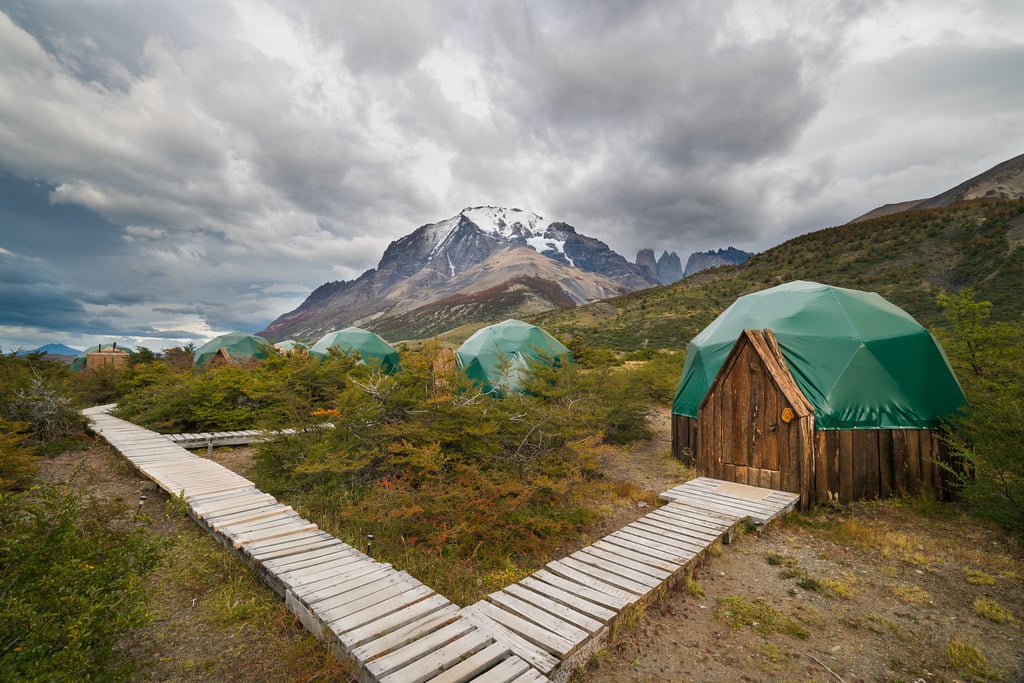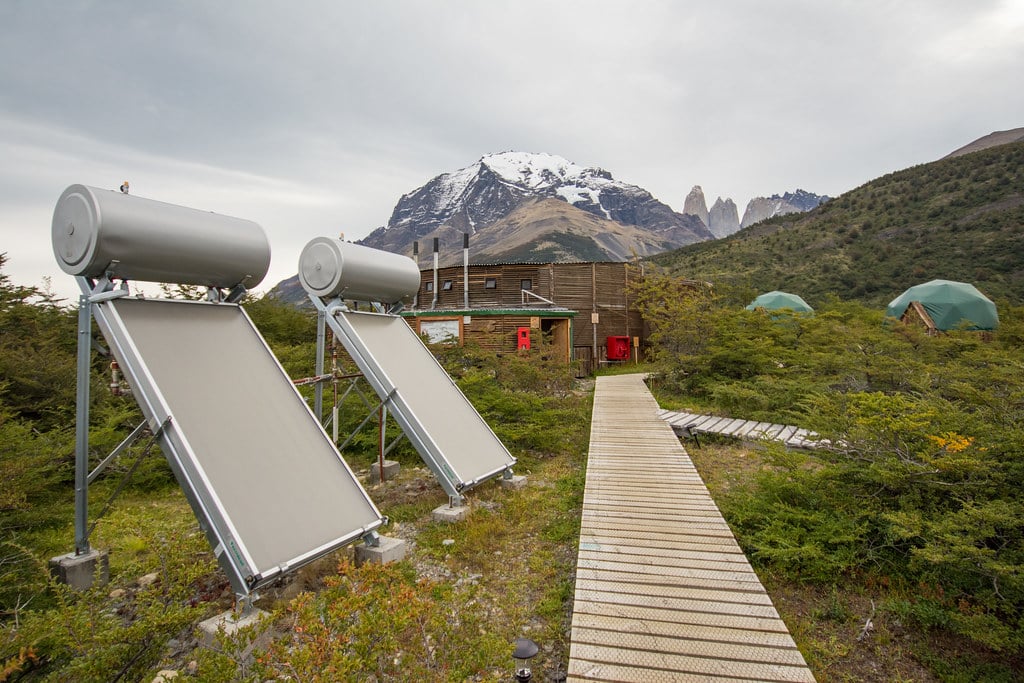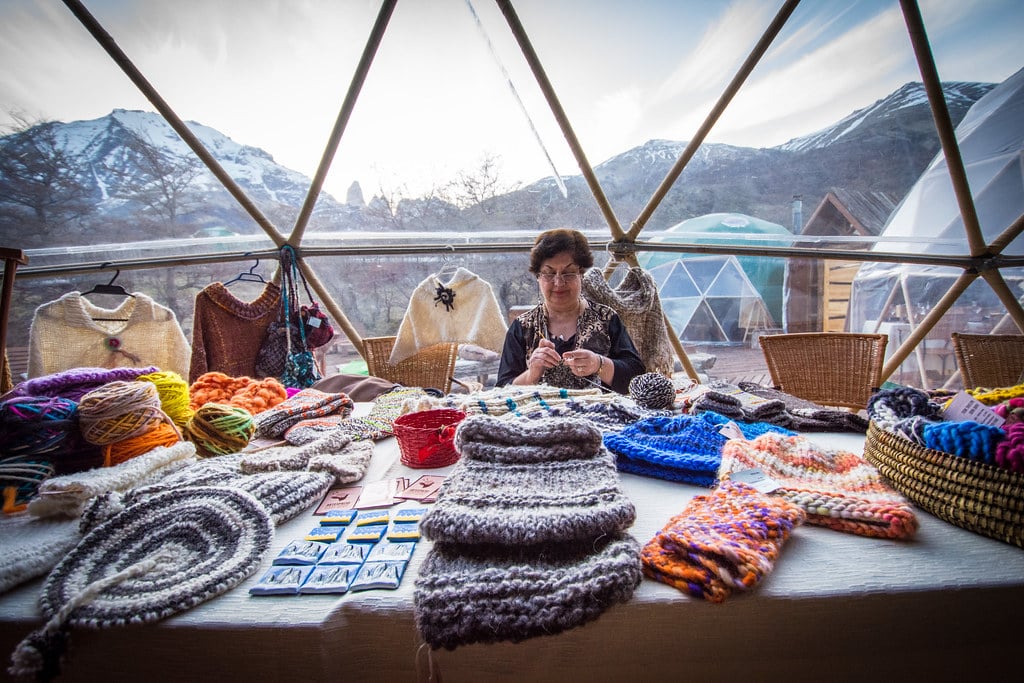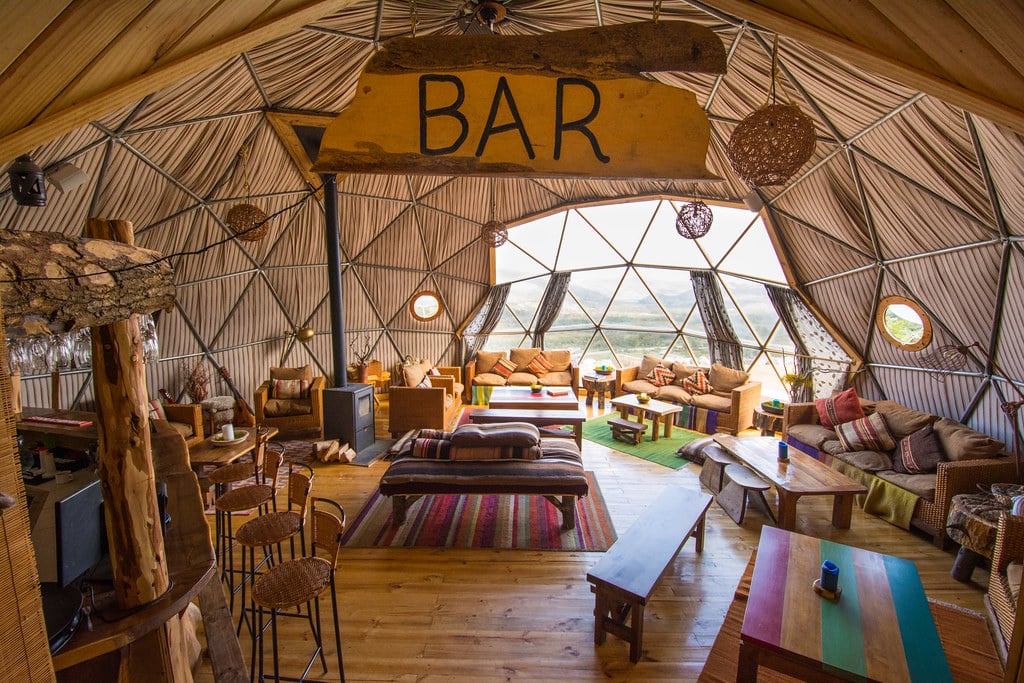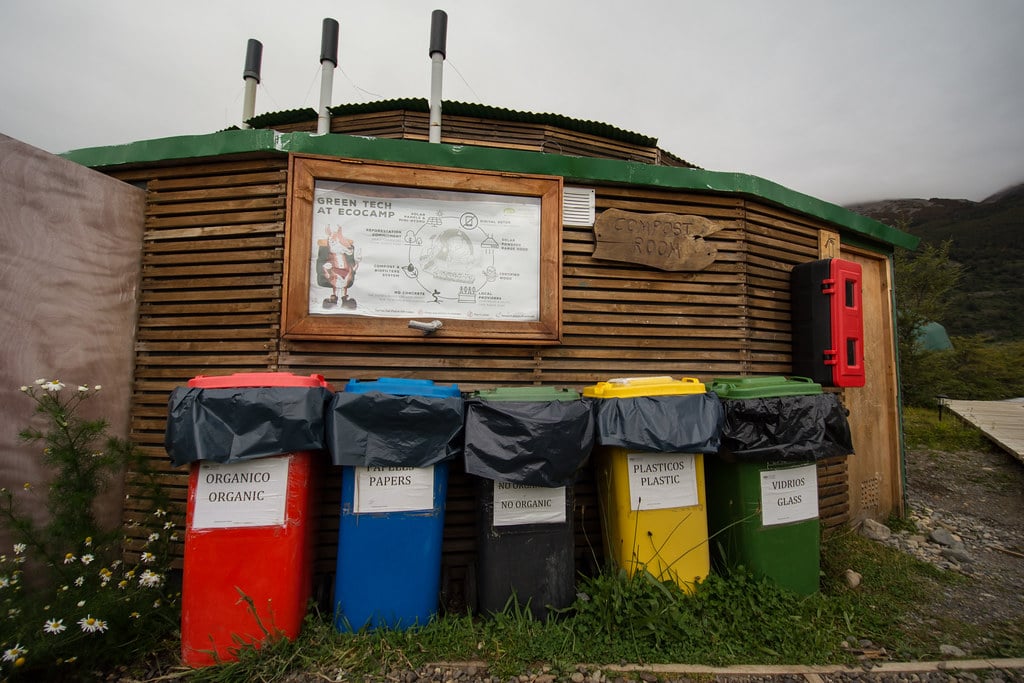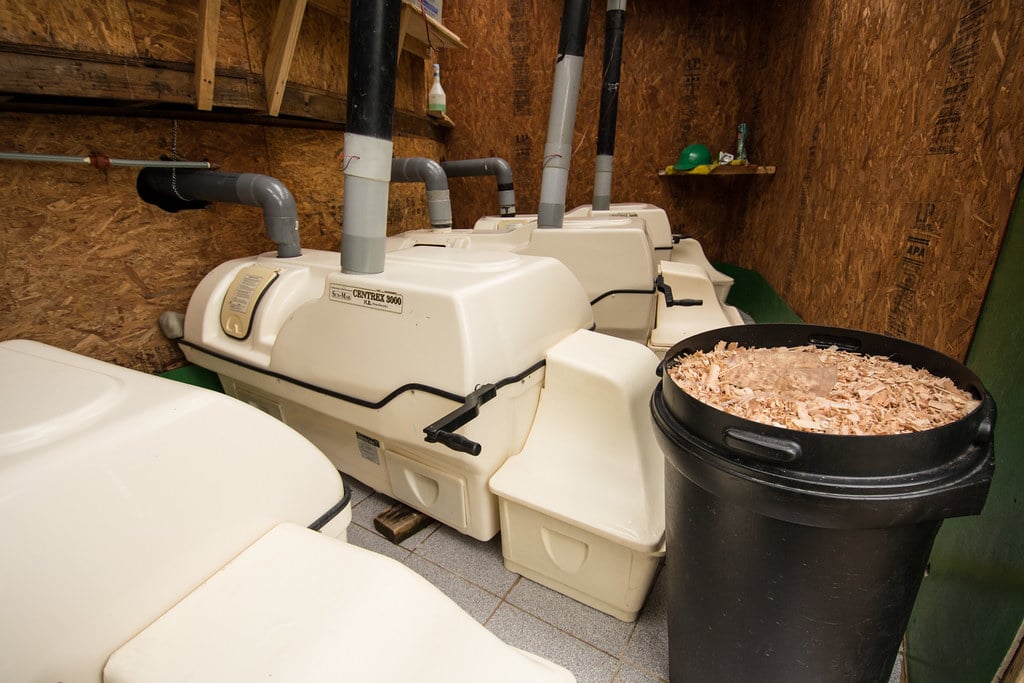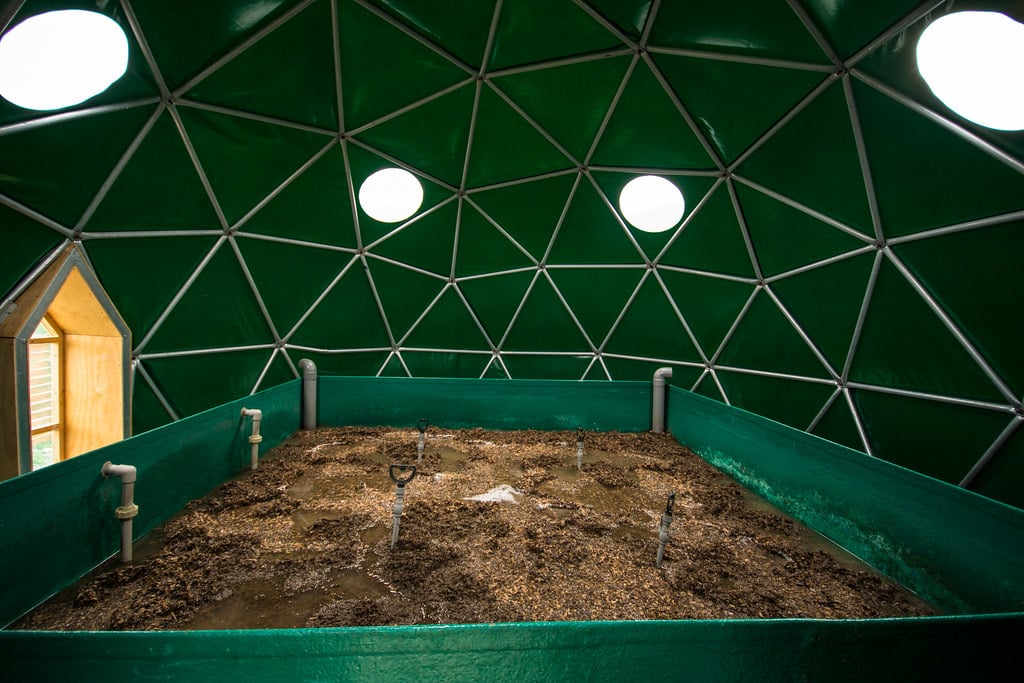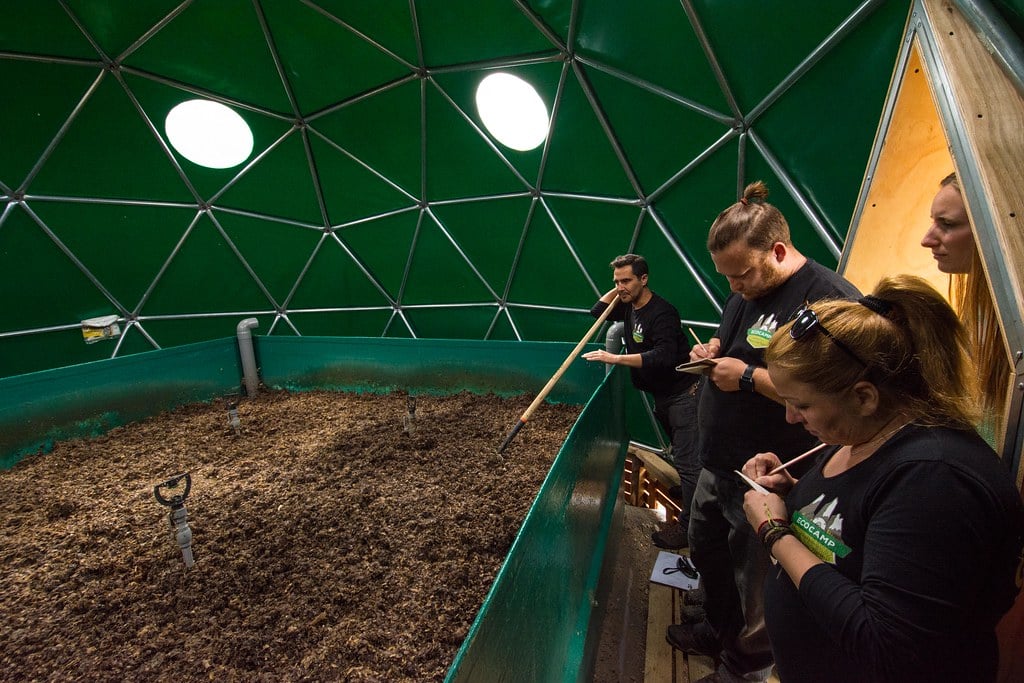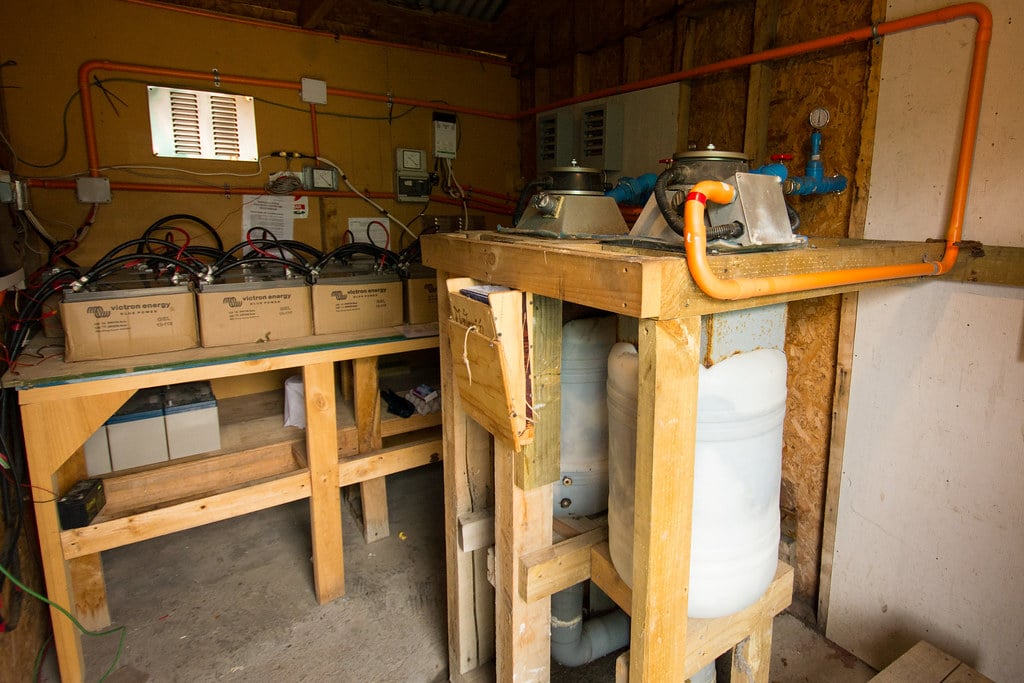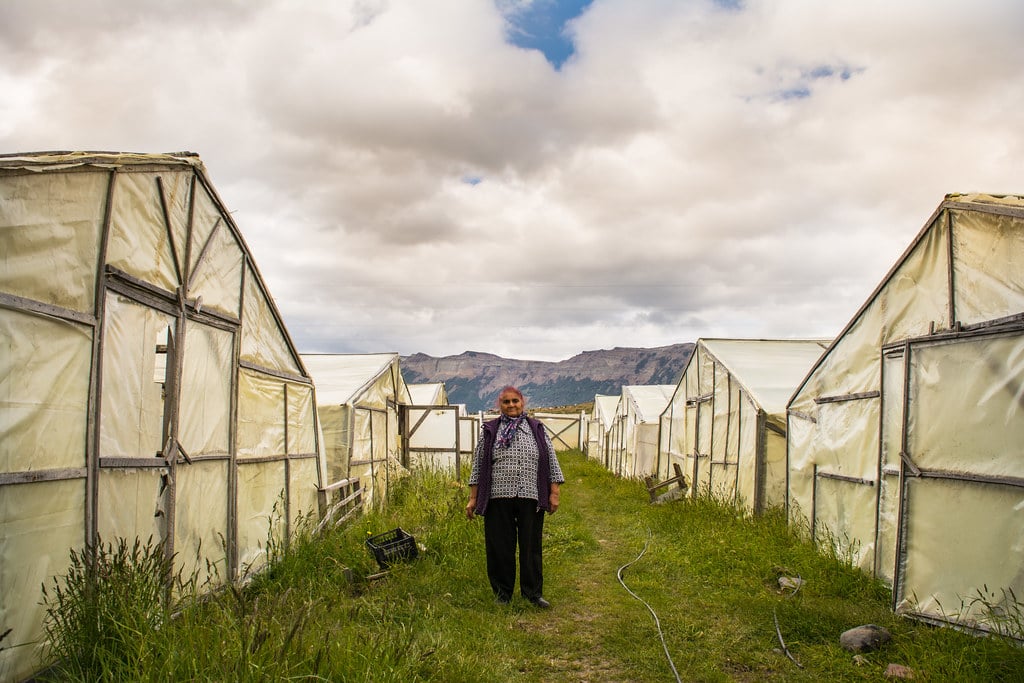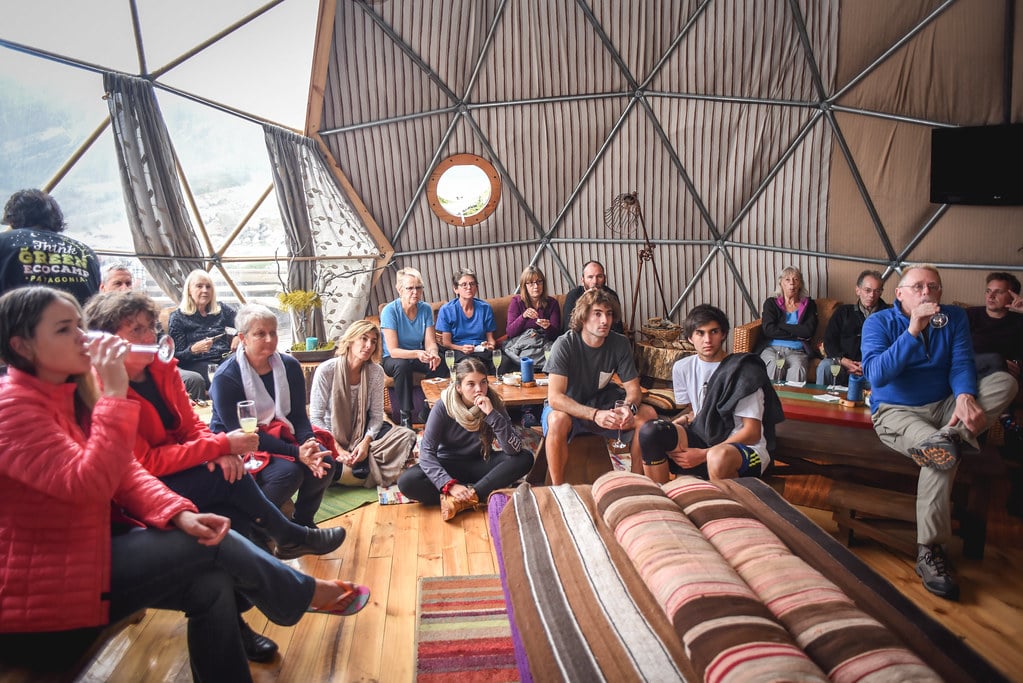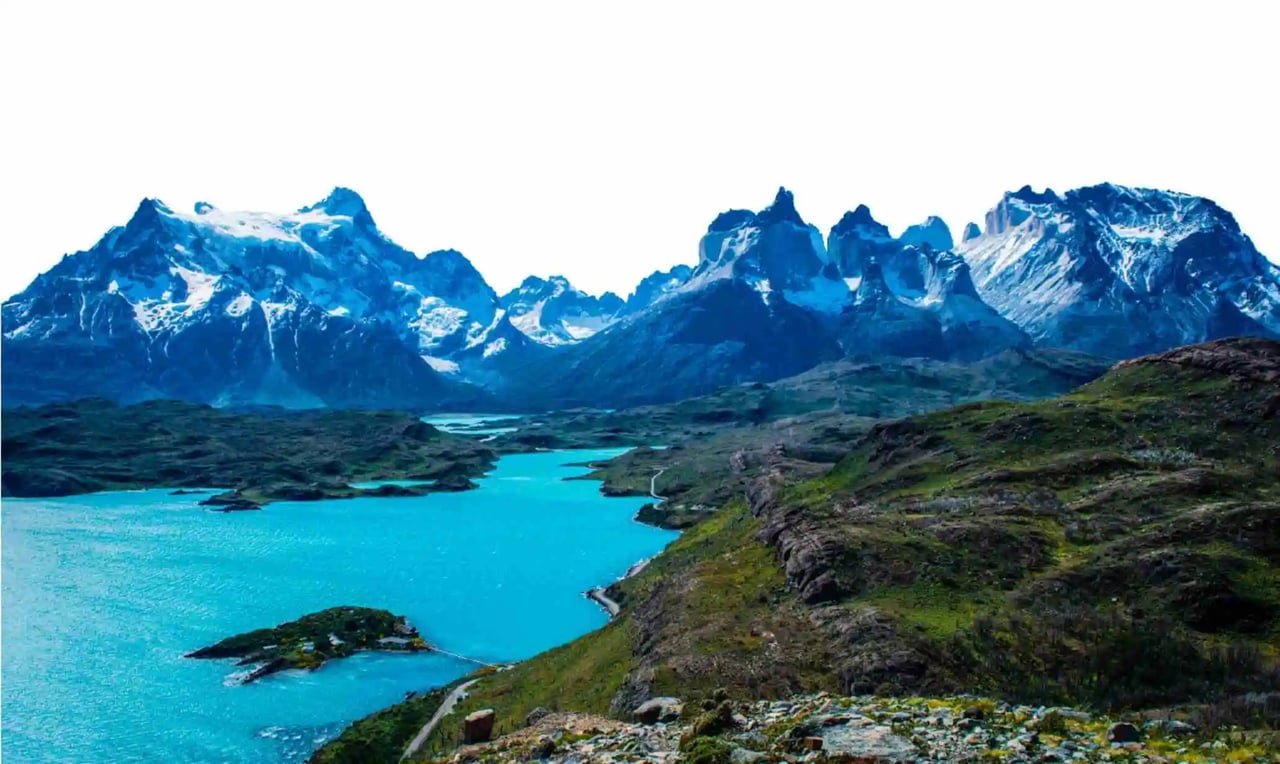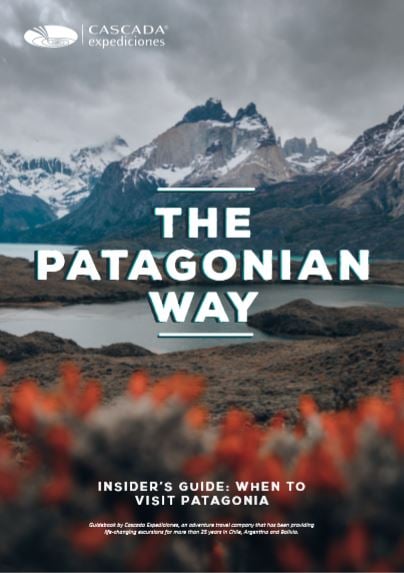Our world is changing. In Patagonia, travelers can witness a glacier's retreat from their hotel room. And yet most hotels worldwide still mainly depend on fossil fuels to provide their guests with all the facilities they need.while, for instance, the Grey Glacier in Torres del Paine National Park retreats by about 100 meters every year and global temperatures keep rising.
But, hey, don’t lose hope. Here are 10 tips that can make a hotel truly sustainable. Live from EcoCamp Patagonia, the first geodesic hotel in the world and an award-winning eco-hotel, we’ll provide you examples that can be applied anywhere else in the world, for a greener tourism.
1. No Concrete
The 21st century saw the emergence of dozens of sustainable lodgings using sustainable materials and no concrete. Yurts, domes, tepees…be original and give a context to what you’re building. When EcoCamp started 15 years ago, the founders wanted to pay tribute to the ancient indigenous tribes that were moving from a place to another while building dwellings and leaving no trace…hence the dome. All 33 domes were built on wooden platforms and wooden paths were built to connect the domes. There is less visual impact, it’s cool, and it avoids having a negative impact on the soil.
2. Thermosiphon for Hot Water
Forget about natural gas. Even in (relative) cold places like Southern Patagonia, the sun is a master. Thermosiphons are a fantastic way to provide guests with hot water, even on freezing Patagonian nights. Water is heated passively by solar energy and relies on heat energy being transferred from the sun to a solar collector. The heat from the collector is directly transferred to water. Enjoy your shower!
3. Community is Involved
Giving back to the community is much more than creating employment locally. EcoCamp leads projects with the local community of the nearest town, Puerto Natales, 130 kilometers away from the National Park. Once a month, EcoCamp invites local handcrafters to introduce their amazing work to travelers. Guests can understand what the local handicraft is about, and economically support it while buying the products. The geodesic hotel also works with a local bakery for some of its bread, a local family-owned laundry, local farmers (for the organic good!) and a local butchery, which represents hundreds of people. Not to mention EcoCamp regularly invites students from a locals school to teach them the secrets of sustainable tourism.
4. Optimization of Natural Light
“To build clever” is to be able to optimize what’s already here. And the good news is that there is light everywhere is you look for it. While building its domes, the founders of EcoCamp chose to set up wide windows in every dome to optimize natural light and creating bright rooms for the guests to gather. Not to mention having big windows allows travelers not to miss the awesome view of the mountains.
5. Waste Sorting and Recycling
Despite the fact some countries are used to systematically separate their waste, the concept of separation is still new in most countries. Yet it can make a huge difference if you plan to recycle and to educate people about the different categories of waste. EcoCamp does not only ask his guests to separate their waste in the bins; waste sorting is compulsory for the staff. As for recycling, whereas most of the waste cannot be recycled in Patagonia (due to the remoteness and the fact there’s no recycling plant nearby), the hotel recycles as much as possible and is currently supporting a local project to increase the recycling rate – not only for the hotel but also for the whole community.
6. Composting Toilets
Good thing about the composting toilets is that they require almost no water and are great for soil regeneration. Composting chambers collect waste from toilets and solid waste remains in the chamber, mixed with wood chips, it is heated to keep microorganisms alive and the compost process active. Liquids are passed through a cleaning chamber, filtered, then passed into the ground. Due to the low temperatures in Patagonia, great effort is required to maintain the active process. At EcoCamp, all the guests use composting toilets.
7. Bio Filtration
Bio filtration is actually quite an old concept (born in Germany in 1923), yet it is surprisingly new in the tourism industry. The idea? A bioreactor (at EcoCamp, the bioreactor is contained in a dome) contains living material to capture and degrade pollutants biologically. Biofiltration at EcoCamp is used for wastewater treatment (including showers and toilets) of the staff area (the project is still at the start-up phase and may be used for all guests in a next future). 5 layers are used for water filtration, including Californian worms (Eisenia Fetida). In the end water is pure and can be given back to the soil. Amazing, isn’t it?
8. Support of Conservation Projects
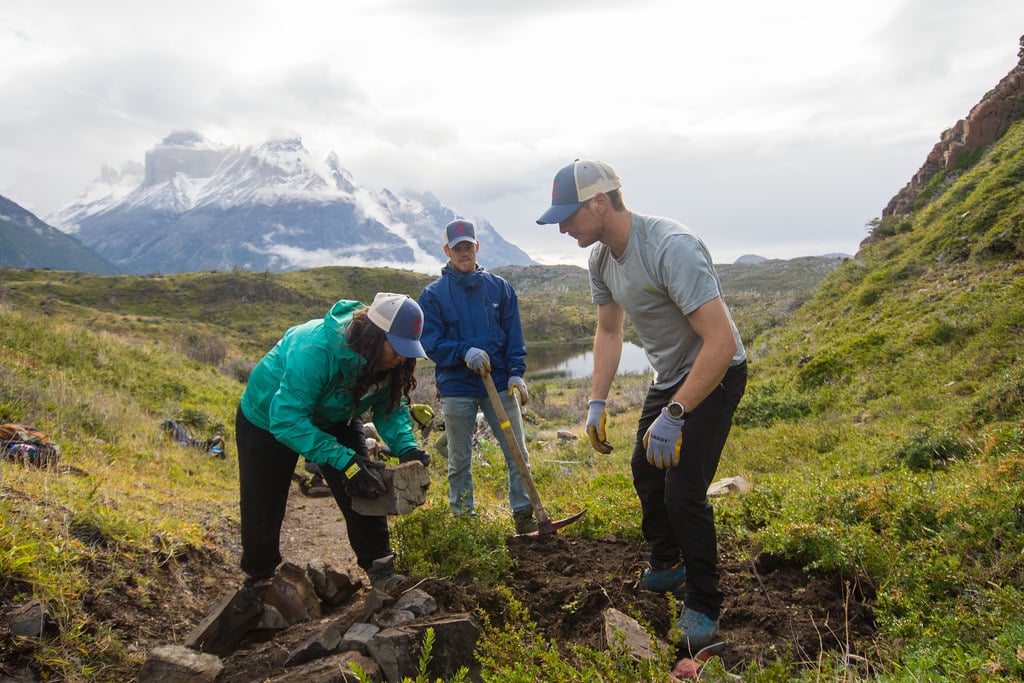 EcoCamp staff volunteering with Torres del Paine Legacy Fund for the contruction of a new trail in the park!
EcoCamp staff volunteering with Torres del Paine Legacy Fund for the contruction of a new trail in the park!Anywhere in the world you’ll find great projects waiting for you to support them. National Parks will always need people for trail regeneration, reforestation, waste management and wildlife conservation. As for Torres del Paine National Park, almost a third of the forests were burnt in tragic human-made fires, which is just another excuse to support the long-term health of the area. EcoCamp is supporting a local organization, Torres Del Paine Legacy Fund, to protect the park with donations and the help of volunteers for projects involving the construction of a new trail and trail regeneration. Not to mention the hotel offsets its CO2 emissions (with www.carbonfund.org) to fight climate change while going “carbon neutral.”
9. Education
You may be the most eco-friendly company on Earth; no one will spread the word and do the same good you’re doing to the Earth if you don’t educate the people. EcoCamp trains its staff about its green ethos, and provides an “Eco-Tour” of the ecolodge every week, to raise awareness and for the guests to learn about the sustainability of the place…and hopefully get inspired to innovate once at home.
10. Renewable Energy
Solar panels are now affordable and easy to implement, yet there are other incredible sources of energy in the wilds. At EcoCamp, about 30% of the energy is provided by solar panels (with up to 17 hours of sunlight a day in summer, sun is a master in Patagonia) whereas about 70% is provided by a micro-hydro turbine which transforms the water from a nearby watercourse into electricity that can be used to power EcoCamp’s refrigerators, lighting, electrical appliances, etc. Water from the river enters the micro-hydro turbine at 5 litres per second with a net pressure of 38 meters delivering a steady power of 800 Watts. An inverter is used to switch from the 24V DC in the battery bank to 220 AC, the standard voltage in Chile. The hotel still asks his guests to save energy and not to use hairdryers.
11. Organic Food (and wine!)
Travelers will allow like organic food better than supermarket vegetables and industrial meat. That’s why EcoCamp knows which farmers the hotel is working with and provides organic wine to its guests. Believe me, food is way more tasteful when it’s organic.
12. Honesty
Sustainability is a way of life, yet there are always things to improve. Lying is bad: sustainable hotels are transparent and provide their guests with updated information. EcoCamp said no to Greenwashing. The hotel is currently working with a sustainability manager whose mission is to constantly improve the eco-friendliness of the place and to make sure information is provided to the guests. And to tell the guests when things are not perfect, too.
Do you want more information? Visit cascada.travel and learn about our programs

